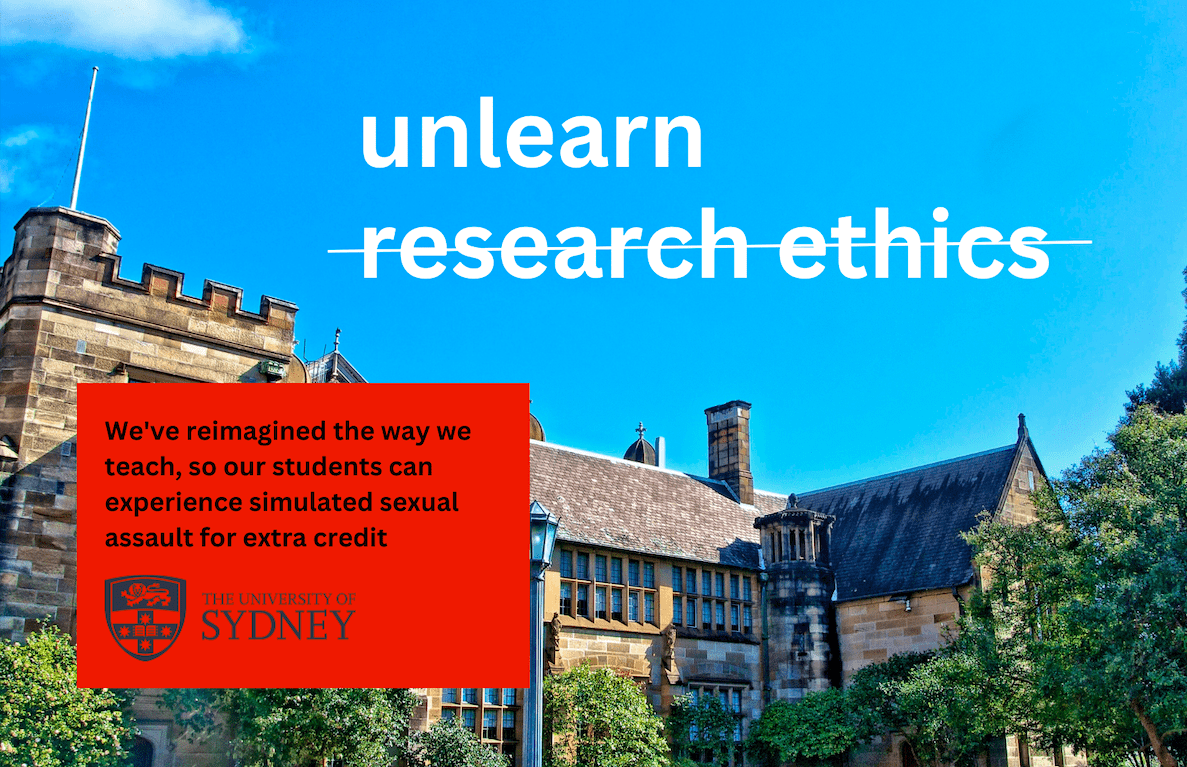CW: Honi wishes to advise that the following article contains discussions of sexual violence, and may be triggering for readers. If you have been a victim of sexual violence, consult Our Watch for resources to make a report. Alternatively, contact the NSW Sexual Violence Helpline on 1800 424 017 to receive immediate crisis support.
The University of Sydney’s School of Psychology posted an experiment last month asking students to undergo a virtual reality experiment with implied sexual assault for additional credit.
This experiment was advertised for several PSYC units of study scoring an extra credit point for participation. The second step of the experiment includes watching a recording of the VR scenario on a computer screen where students are asked to “pay attention to the stimuli as though you are experiencing the stimuli yourself”. Students are also asked to recollect what they saw or heard afterwards and the interview is video recorded for “transcription and coding purposes”.
Honi was informed by a student from the faculty that credited research participation is also a part of units like PSYC1001 and PSYC 1002. “Sometimes there are electric shock experiments and a few other strange ones but they are usually titled as such. I signed up and it didn’t mention any warning as to what it was,” said the student.
USyd SRC Women’s Officer Iggy Boyd condemned the study by stating that “Sexual violence is an extremely traumatising and life-altering experience and should be handled with extreme caution by educators; the School of Psychology here has blatantly flaunted this by simply addressing it as any other “crime” that students should be expected to experience if they study under the degrees in that school.”
“How can they ensure that students won’t become traumatised by experiencing such a realistic recreation of sexual assault? This is yet another statement by USyd Management that they do not think sexual violence on campus is a real issue, particularly when you note that only female students can take part and they must be video recorded and cross-examined after exposing them to such a traumatic experience. This is disgusting and you have to wonder how this passed the ethics criteria for research in psychology.”
It’s important to note that in the scenario used in the study, any threat is implied rather than experienced. The scenario stops before any assault takes place.
“The wellbeing of our students is always our first concern,” claimed a University of Sydney spokesperson, “while undoubtedly a challenging subject matter, this study hopes to be the first to establish how to scientifically verify the most appropriate way to interview victim-survivors to ensure greatest recall accuracy while avoiding retraumatising them.”
The University has stated that, “participation in the study is voluntary, students are not required to take part, and can withdraw at any time during the study.” However, students who don’t want to engage in SONA experiments are required to write a 900-word essay on ethics to receive extra credit scores for their course.
This study has been approved by three independent human research ethics committees – the University of Sydney’s and those at collaborating institutions the University of Birmingham and Lancaster University. It is also one of the 84 studies active on SONA and students can choose from among these for participation.





